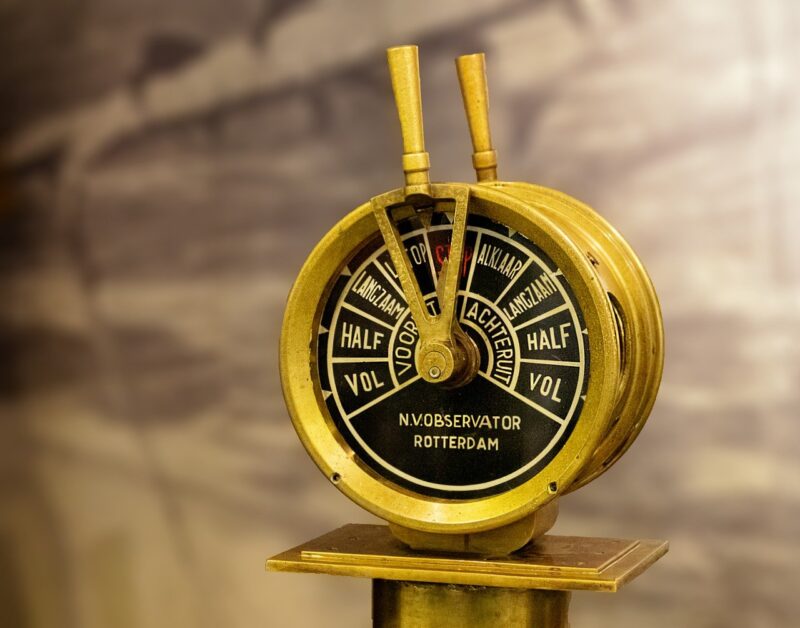How the Telegraph Changed Communication Forever in the 19th Century
November 15, 2024

The 19th century marked a transformative era in the way humans communicated with one another. At the heart of this revolution was the invention of the telegraph—a device that would forever alter the fabric of society, facilitating instant communication over long distances. This article explores the origins, development, and far-reaching impacts of the telegraph, illustrating how it redefined interactions socially, economically, and politically.
1. The Birth of the Telegraph
The telegraph’s roots can be traced back to the early 19th century when inventors began experimenting with various methods of long-distance communication. However, it was Samuel Morse and his partner, Alfred Vail, who made a breakthrough in 1837 with the development of the first practical telegraphic system. Morse’s innovation was not just the electrical apparatus but also the creation of the Morse Code—a series of dots and dashes representing letters and numbers.
Before the telegraph, communication over long distances relied on physical messengers, written letters, or signal systems like smoke or flags, which were slow and subject to delays. With the advent of the telegraph, messages could be transmitted almost instantly across vast distances, revolutionizing how information was shared.
2. How the Telegraph Works
The basic principle behind the telegraph is simple: it uses electrical signals to convey information. Here’s how it operates:
- Sending a Message: A telegraph operator would tap a key that sent electric pulses through wires, translating into Morse Code.
- Transmission: These signals traveled along copper or iron wires laid between towns and cities, enabling operators at the receiving end to decode the messages.
- Receiving a Message: The receiving operator would listen for the clicks of the telegraph sounder, decoding the tap patterns into readable text.
The telegraph system could span thousands of miles, connecting cities that were once isolated. It soon became the backbone of global communication.
3. The Social Impact of the Telegraph
The introduction of the telegraph changed social interactions across all sectors. Here are some profound effects:
- Speed of Information: News that once took weeks or months to reach distant places was now available within minutes. This increase in speed fostered a more informed society, altering perceptions of global and local events.
- Connection Over Distances: Families separated by long distances could communicate instantly, providing emotional support and strengthening relationships.
- Emergence of News Agencies: The rapid transmission of information led to the creation of news wire services, which provided real-time news updates and contributed to national and global awareness.
As society adapted to the new medium, the telegraph became an integral part of life in the 19th century, reflecting modernity and progress.
4. The Economic Effects of the Telegraph
The telegraph was not just a communication tool; it had significant economic implications as well:
- Market Efficiency: Financial markets experienced a seismic shift as telegraph companies began transmitting stock prices. Traders could respond to market changes almost instantly, leading to increased trading activity and more efficient markets.
- Expansion of Businesses: Businesses could coordinate operations and make decisions faster. Companies like Western Union leveraged the telegraph to create expansive networks for communication and commerce.
- Global Trade: The telegraph helped manage transatlantic trade by establishing communication between countries. Shipping practices became more streamlined, allowing businesses to thrive in the global marketplace.
These advancements catalyzed the rise of capitalism and transformed economies around the world.
5. The Political Influence of the Telegraph
Politically, the telegraph also played a significant role in reshaping governance and diplomacy. Key impacts include:
- Real-time Politics: Politicians and leaders were quickly informed about developments, allowing for rapid decision-making and response, which was crucial during crises like wars and natural disasters.
- Public Engagement: The telegraph enabled governments to release information faster, allowing them to engage and communicate with citizens more effectively, fostering a sense of participation in democracy.
- International Relations: Diplomats could negotiate deals and respond to events across borders closer to real-time, significantly altering international relations and diplomacy practices.
The telegraph empowered states to act with newfound swiftness, shaping the political landscape in ways previously unimagined.
6. The Decline of the Telegraph
Despite its profound impact, the telegraph began to decline with the advent of newer technologies in the 20th century. The rise of the telephone and eventually the internet rendered telegraphic communication obsolete. Key points about its decline include:
- Telephone Revolution: The invention of the telephone provided a more intuitive and interactive way of communication, eventually replacing the telegraph’s dominance.
- Communication Revolution: The internet and mobile technology have further displaced telegram services, allowing for instantaneous, multimedia communication and information sharing.
- Cultural Shift: As societies evolved into digital cultures, reliance on visual and verbal communication overshadowed the text-based Morse Code, leading to the phasing out of telegraphic services worldwide.
While the telegraph may no longer be in common use, its legacy continues to resonate in modern communication technologies.
Conclusion
The telegraph was a revolutionary communication device that changed how humanity exchanged information forever. From its inception by Samuel Morse to its global influence in various sectors, the telegraph reshaped social, economic, and political landscapes of the 19th century. While its purpose has largely been fulfilled by more advanced technology, understanding its impact remains essential to appreciating the evolution of communication.
In an age where speed and connectivity define interactions, the telegraph’s invention was pivotal, marking the foundation upon which contemporary communication stands today. As we move further into an era dominated by instant communication, it’s crucial to remember the telegraph as a game changer that paved the way for our interconnected world.








